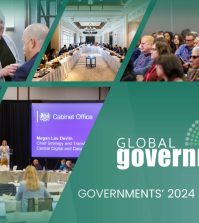World Bank agrees US$200m social aid package for Iraq

A US$200 million emergency package to provide social support and employment for communities devastated in Iraq’s ongoing armed conflicts has been agreed by the World Bank.
The Emergency Social Stabilization and Resilience Project (ESSRP) aims to improve the livelihoods of more than a million households in areas liberated from ISIS forces. The programme will be administered by the Iraqi government to tie in with its existing Iraq Social Protection Strategic Roadmap.
The ESSRP will launch a “cash-for-work” initiative to create short-term employment for 150,000 households, deliver mental health programmes and gender-based violence assistance services for more than 150,000 people, and finance small and micro enterprises involving 12,000 households.
Hearts & minds
The programme represents a bid by the international community to reach out to Sunni communities in the north of Iraq, where many people are deeply suspicious of the Shi’a-led government. Regarded by many Sunnis as deeply corrupt and sectarian, the Baghdad government run by PM Nouri al-Maliki during 2006-14 consistently alienated northern communities – allowing ISIS to present themselves as defenders of the Sunnis against Shi’a aggression. Following the successful retaking of Iraq’s second city Mosul at the end of last year, the country’s top US commander urged the government to “reach out and reconcile with the Sunni population” in order to prevent “ISIS 2.0 from emerging”.
The ESSRP could help northern Iraq recover from the battle against ISIS, and World Bank Mashreq regional director Saroj Kumar Jha has made clear that it’s designed to foster economic growth: “This project will support individuals and households to address the impact of the recent conflict and help communities to kick-start economic activity and create more jobs,” he said.
However, delivery will sit with the Baghdad government: the programme is to be managed by the Ministry of Labour and Social Affairs (MOLSA) under the guidance of the existing Supreme Committee for Poverty Reduction Strategy. This is chaired by prime minister Haider al-Abadi – but unlike his predecessor, al-Abadi has consistently made efforts to engage with Sunni and Kurdish leaders, and to tackle corruption.
The mechanics

Iraqi prime minister Haider al-Abadi has consistently made efforts to engage with Sunni and Kurdish leaders, and to tackle corruption (Image courtesy: UK Foreign and Commonwealth Office).
A project management office will be set up within MOLSA to lead the programme, drawing on the resources of the ministry and the Social Protection Commission and hiring consultants as necessary. It will also liaise closely with MOLSA’s Labour and Social Assistance Departments in each governorate, which coordinate closely with local government.
Minister of labor and social affairs H.E. Mohammed Shayaa Al-Sudani said: “The project will support poverty reduction and stabilisation in the liberated areas. At the same time, income-generating microfinance programs will allow households to restart business activities and to create jobs in these areas.”
The cash-for-work programme will be implemented in seven governorates: Ninawa, Anbar, Salahideen, Diyala, Kirkuk, Baghdad and Babel. A committee chaired by the governor will also be set up to coordinate the work programme in each participating governorate.
Reconstruction & repair
In urban areas, work will include street sweeping and cleaning, clearing drains, painting public buildings and rehabilitating schools, community buildings and recreational spaces. In rural areas, activities will include clearing common agricultural land, breaking rocks for road repairs, clearing and repairing culverts and cutting back roadside foliage.
Project team leader Ghassan Alkhoja, who is the World Bank’s senior social protection specialist, said a key component of the project is to ensure people can address “existing and future shocks”.
“This project will improve social safety net programmes for 1.2m households across Iraq,” he said. “It will allow households to invest in health and education, to break the intergenerational transfer of poverty.”
Ultimately, though, the programme will only work if its leaders and managers ensure that funds reach their intended recipients, and are not swallowed up in consultancy and management costs or lost to corrupt national and local officials.




















